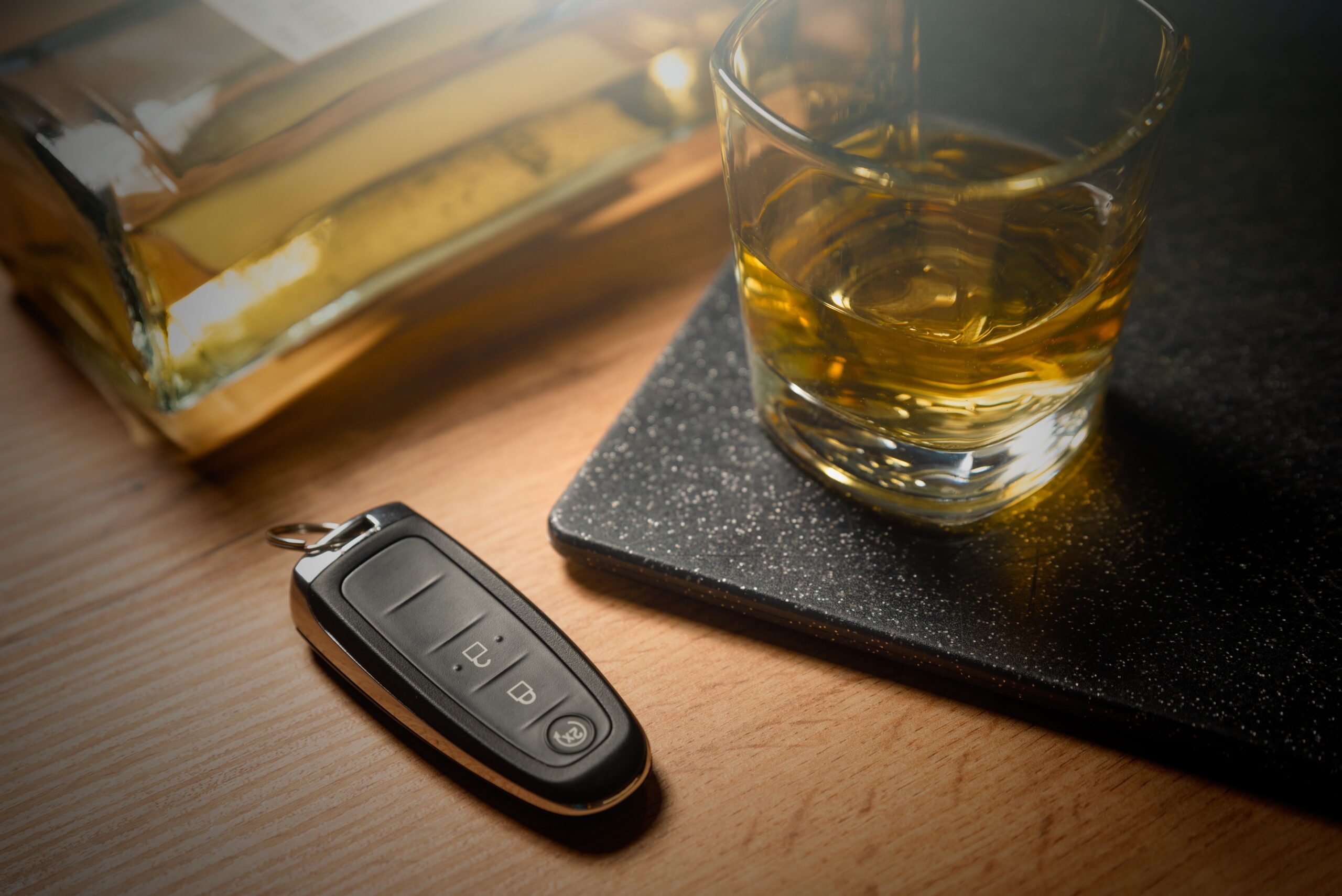
Can a Lawyer Erase a DUI from Your Record?
A DUI conviction can have long-lasting consequences, affecting your job, insurance premiums, and reputation. If you’re asking whether a lawyer can remove a DUI from your record, the answer depends on Pennsylvania law and the details of your case. Working with DUI lawyers in Philadelphia can help you explore legal options to minimize the impact of a DUI.
Understanding DUI Records in Pennsylvania
In Pennsylvania, a conviction for DUI appears on both your driving record and your criminal record. Your driving record, maintained by the Pennsylvania Department of Transportation (PennDOT), can result in license suspension and increased insurance premiums. Your criminal record, which is accessible to employers and law enforcement, can affect employment, housing, and professional licensure.
A DUI conviction will not automatically go away with time. However, legal options are available to limit the impact. Retaining an attorney who specializes in DUI matters is important in deciding on the correct course of action.
Can a Lawyer Erase a DUI from Your Record?
A lawyer cannot make a DUI conviction vanish completely, but certain legal strategies can help minimize its long-term consequences.
Expungement in Pennsylvania
Expungement removes a DUI from your criminal record, but Pennsylvania has strict eligibility rules. A DUI conviction cannot be expunged unless:
- You were accepted into and successfully completed the Accelerated Rehabilitative Disposition (ARD) program.
- You are 70 years old and have been free of arrests or prosecutions for ten years.
- The conviction was for a summary offense and you have remained arrest-free for five years.
Expungement does not remove a DUI from your driving record, which means insurance companies and PennDOT may still have access to the information. However, it does prevent most employers and landlords from seeing it in background checks.
Limited Access Petitions
If you do not qualify for expungement, you may qualify for a limited access petition. This closes your DUI record from most public access, including employers and landlords, although law enforcement and certain agencies may still see it. Limited access petitions are available for certain misdemeanor offenses, including certain DUI offenses, if you have completed all sentencing and have been arrest-free.
Seeking a Charge Reduction
An experienced DUI lawyer can negotiate a reduction of your DUI charge to a lower offense, say reckless driving. A lower offense has less long-term consequences and may be easier to seal or expunge in the future. This strategy depends on the details of your case, including your blood alcohol content (BAC), prior record, and mitigating circumstances.
Consequences of a DUI Beyond Your Record
Even if your DUI is expunged or sealed, it can still affect certain aspects of your life.
Employment and Background Checks
Most private employers will not see an expunged or sealed DUI, but government jobs, law enforcement, and certain regulated industries may still have access. Professional licensing boards may also consider past DUI convictions when reviewing applications.
Insurance Rates
DUI charges remain on your Pennsylvania driving record for at least 10 years. During those 10 years, your insurance premiums may remain high even if your criminal record has been expunged.
Immigration and Travel Restrictions
A DUI can be ruinous for foreigners, affecting visa petitions, green card renewals, and citizenship eligibility. Certain countries, like Canada, restrict entry for individuals with a DUI conviction.
Finding the Right DUI Lawyer in Philadelphia
The laws surrounding DUI expungement and record sealing in Pennsylvania are complex. Working with detainer lawyers in Philadelphia ensures you understand your legal options and take the best steps to protect your future. A skilled attorney can help determine eligibility for expungement, file petitions, and negotiate reductions that minimize long-term consequences.
Take Control of Your Future
A DUI does not have to define your future. While it is not always feasible to erase it entirely, there are legal ways of reducing its impact. The first step in clearing your record is consulting with an experienced DUI attorney. If you would like to learn more about your alternatives, contact our office today to book an appointment.
Read More
How Long Can You Go To Jail for Traffic Tickets?
We’ve all been there. That sinking feeling when flashing red and blue lights fill your rearview mirror is all too familiar. You know you screwed up and this will result in a traffic ticket. Now you’re probably wondering, how long could you go to jail for traffic tickets? You might be stressed about fines, points assigned to your license, or even jail time. Let’s address those concerns and tell you everything you need to know about the possible consequences of traffic tickets. If you find yourself in legal trouble, don’t hesitate to contact the best criminal attorney Philadelphia has to offer, ensuring you have top-notch representation.
Traffic Violations: Infractions vs. Misdemeanors vs. Felonies
Not all traffic tickets are the same. There’s a big difference between a parking ticket and reckless driving, a criminal offense. Understanding the categories can help you know how long you might go to jail for a traffic ticket.
Traffic offenses fall into three main categories: infractions, misdemeanors, and felonies.
Infractions
Infractions are minor traffic violations like parking violations, some speeding tickets, and equipment issues. These usually result in fines and won’t lead to jail time.
Examples: running a red light or a seatbelt violation. Consider these as minor violations.
Misdemeanors
Misdemeanors are more serious than infractions and involve harsher penalties. Examples of misdemeanor traffic violations include reckless driving, driving with a suspended license, and driving under the influence (DUI).
Driving with a suspended license, especially for repeat offenders, often involves fines, license suspension, and potential jail time. Jail time for a first offense can be up to 93 days, and a second offense up to a year.
Penalties become more severe for subsequent violations. Even something seemingly minor, like illegal parking running too long or moving violations, can, with court costs and a warrant issued, result in serious legal repercussions.
Felonies
Felony traffic violations are the most severe. These violations include vehicular homicide, fleeing from the police, or causing serious injury while driving under the influence. Felony traffic violations often include a court appearance.
These criminal traffic violations almost always lead to jail or prison time, hefty fines, a permanent record, and driver’s license suspension. A felony charge results from serious criminal offenses.
Examples: repeat drunk driving with prior DUI convictions and vehicular homicide caused by recklessness and excessive speed resulting in a pedestrian auto accident. Some felony cases, like vehicular homicide while intoxicated, face decades in prison.
So, How Long Do You Go to Jail for Traffic Tickets?
The answer to the question of how long do you go to jail for traffic tickets is complicated. The length of jail time, if any, depends on several factors.
The Specific Offense
The specific law you broke greatly influences the penalty. In some states, like Mississippi, felony violations like vehicular manslaughter and aggravated DUI have mandatory jail or prison sentences.
Your Driving Record
A clean driving record can help lessen penalties. Prior offenses, especially recent ones, often increase penalties for new violations. For instance, multiple instances of reckless driving establish a pattern that makes harsher punishments like license suspension more likely. Your overall driving record also includes instances of running a red light.
The State
Traffic laws and penalties vary from state to state. Even actions that may seem less serious like driving under suspension or failure to provide identification to law enforcement during a traffic stop can lead to jail time and driver’s license points in some jurisdictions. This variation underscores the importance of researching the specifics of traffic laws in your location, which can help answer the question of how long do you go to jail for traffic tickets.
The Judge
Judges have some discretion in sentencing, even with set guidelines. Mitigating circumstances, like a medical emergency, can affect the judge’s decision.
If you’re facing traffic ticket charges, take the following steps:
Address Tickets Promptly
Ignoring a ticket can lead to serious consequences, including license suspension and an arrest warrant. It’s important to learn if a warrant related to traffic tickets has been issued.
Understand Your State’s Laws
Traffic laws differ by state. Familiarize yourself with your state’s laws regarding moving violations, reckless driving, and driving on a suspended license.
Consult an Attorney
For charges beyond a basic infraction, consult a traffic lawyer, especially when facing vehicular homicide charges. They can explain the law, protect your rights, and negotiate a payment plan for fines. They can also advise on potential defenses against a person charged with driving suspended. They may also advise if it makes sense to attempt paying traffic ticket fines using some form of bond money. An attorney can explain what kind of moving violation would constitute such harsh punishment.
Additionally, they can offer legal counsel as to when the Department of Public Safety will get notified for such violations as opposed to when just a particular court clerk or court or jurisdiction is aware. In states that do license points, an attorney could be especially useful as there could even be the possibility of going to jail based on enough speeding ticket points leading to a driver’s license revocation and other penalties after the driver gets pulled over enough times over some period.
Understanding the Repercussions
Traffic tickets are serious legal matters. Something as seemingly simple as driving with a suspended license can have severe consequences, including jail time. Understanding the potential repercussions based on your specific charge, circumstances, and state laws is crucial.
Educating yourself on possible penalties upfront and seeking legal advice can protect you and others, possibly preventing tragic situations and harsh legal punishments.
Traffic violations include everything from minor infractions to serious felony offenses, and penalties can range from small fines to decades in prison. Facing criminal charges can be daunting, but with the best DUI defense attorney in PA, you can be confident in your defense strategy.
Read More
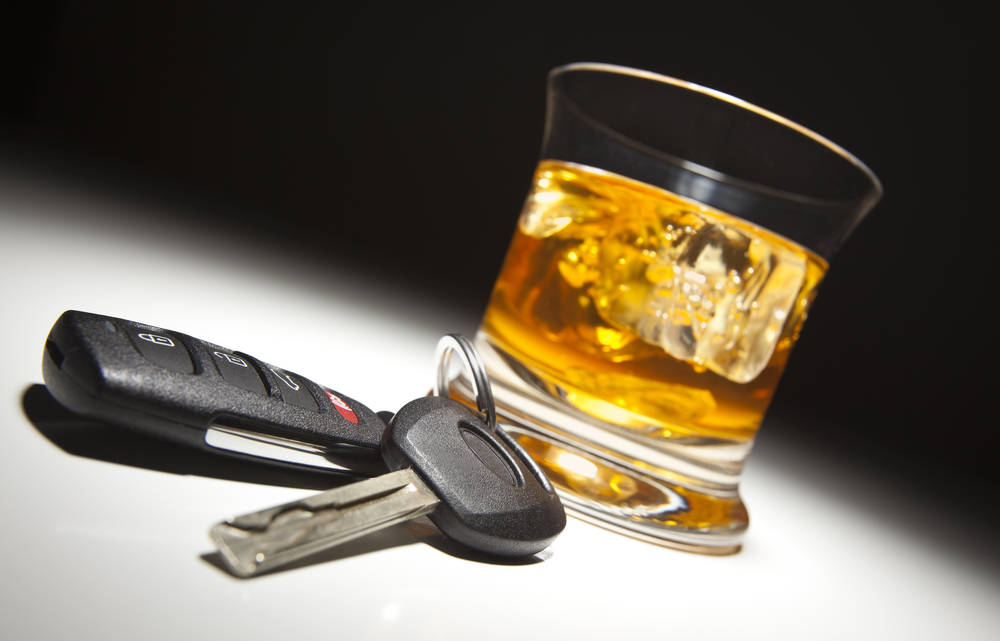
DUI Consequences & Defense Strategies
If you are charged with a DUI, a conviction can have serious consequences. However, an experienced Philadelphia DUI attorney can help you achieve the best possible outcome.
The consequences of a DUI in Pennsylvania will depend on a few circumstances. If it’s your first offense, and you have a blood alcohol content of 0.08% to 0.099%, a DUI is a misdemeanor. You can expect a fine of $300 to $1,500. You may also have probation, alcohol education requirements, and a license suspension of up to 6 months.
A subsequent offense carries a penalty of 5 days to 6 months in jail, a fine up to $2,500, and a 1-year license suspension. If you have more than 3 DUIs within 10 years, your license can be suspended for up to 2 years, and you may spend up to 10 years in prison. You’ll also pay fines that can total up to $20,000.
A skilled lawyer has many options for DUI defense strategies, depending on the circumstances of your case.
Illegal Stop or Arrest
An officer must have a reason to believe that you are breaking the law before stopping your vehicle. This may include driving recklessly or speeding. They can’t pull you over based on a hunch, or because you are leaving a bar or other establishment that serves alcohol.
You are protected by the Fourth Amendment, which protects you from “illegal searches and seizures”. It’s up to the state to prove that they had a legitimate reason for the stop. If the stop was illegal, then any evidence obtained from the stop can be suppressed. In most cases, this results in the case being thrown out due to lack of evidence.
Inaccurate or Invalid Field Sobriety Test
Field sobriety tests are notoriously inaccurate. They should be standardized, but not all officers or police departments use standardized field tests. For example, touching your finger to your nose or reciting the alphabet are not part of the standardized test.
There are multiple reasons some people fail the field sobriety tests that have nothing to do with being impaired. These include being overweight, elderly, or having a disability.
Challenging Alcohol Testing
Breathalyzers are often used at the scene. The amount of alcohol in your lungs is measured using a breathalyzer device. This is used to estimate the amount of alcohol in your blood. However, some factors can cause inaccurate breathalyzer readings. In the best of circumstances, these machines have a 10% margin of error.
Blood alcohol testing is more accurate, but these results can also be called into question. False positive results can occur due to diabetes, cold medicines, and certain herbal supplements. Improper storage can allow blood to ferment, which can also cause a false positive result.
No Attorney Present During the Investigation
In DUI cases, time is of the essence. If you’ve been read your Miranda rights, you know you have the right to an attorney. If you weren’t given the opportunity to contact an attorney, your case may be dismissed.
The state can delay your access to an attorney if it impedes their investigation. However, if you are denied, the state must prove that allowing you to consult with your attorney would impede their investigation.
No Evidence You Were Driving the Vehicle
The law requires you to be in “actual physical control of your vehicle” to be guilty of DUI. If you were simply sleeping it off in your vehicle, your attorney may claim that you weren’t in physical control or had no intention of driving under the influence.
DUI Attorney in Philadelphia
If you are charged with a DUI, you need the best criminal lawyer in Philadelphia. Contact us at Brennan Law Offices. We have been providing criminal defense for more than 30 years. We can help you avoid a conviction, or minimize its impact on your life.
Read More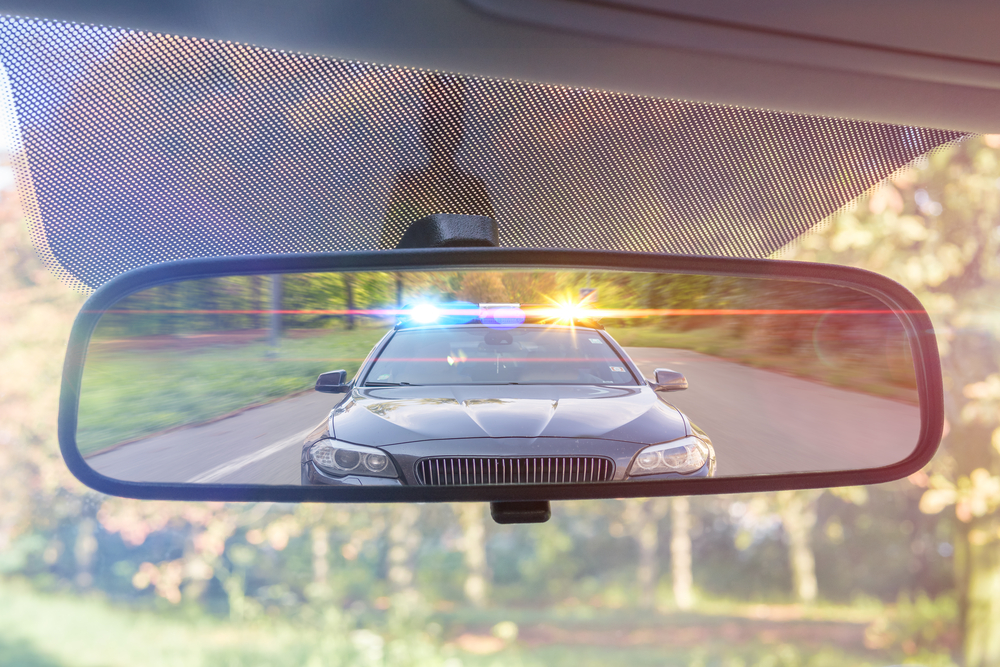
What Goes On My Driving Record?
In Pennsylvania, like every other state, there are driving records kept on every person that holds a state-issued driver’s license. The Pennsylvania Department of Transportation, known as PennDOT, adds points to these records for particular moving violations, the number of which will vary depending on the severity of the offense. If a Pennsylvania motorist accrues more than 5 points, PennDOT will take action against him or her. These actions include:
- Sending a written letter asking the driver to take a special written test
- Asking the motorist to attend a requisite departmental hearing
- Suspending the driver’s license for 15 to 30 days
- Re-taking the on-road driving test
If a Pennsylvania driving record reaches more than 10 points, the motorist’s driver’s license will be automatically suspended. The automatic suspension also comes into effect if a motorist drives under the influence, or has been clocked driving at a rate of 31 mph or more over the posted speed limit. The former offense requires a suspension of one year, while the latter only requires 15 days.
Luckily, PennDOT will remove certain points from your Pennsylvania driver’s license if you drive for a period of 12 consecutive months without a suspension or moving violation. Also, after having a clean, pointless record for one full year, your record will be treated as new as far as point accumulation going forward.
It is critically important to keep track of your driving record. It can affect you in many more ways than you would think. First of all, your insurance premium is determined by your driving record. Even one speeding ticket can affect insurance premium rates for up to 5 years.
Your driving record, of course, can affect your legal ability to drive. For example, DUIs or reckless driving charges can result in you getting your license suspended. But, you certainly need to keep track of your routine points. Points for minor offenses add up to suspensions, too, as was explained above.
Can you get your Pennsylvania driving record expunged?
Believe it or not, PennDOT does not allow driving records in Pennsylvania to be expunged. As a matter of fact, in accordance with expungement laws, only the governor of the state has the authority to have any criminal conviction expunged from your record, but that does not include driving histories, which, in accordance with further statutes, cannot be cleared. This includes violations of all scopes. So, while your points will disappear with time and better driving habits, the offenses that led to them will remain on file with the state of Pennsylvania.
In conclusion, it always pays to keep your nose clean when driving. If you know you have had too much to drink, there is no shame in that. Ask a friend to drive you home, call a cab or contact a rideshare company. You won’t need to speed if you leave plenty of time to get ready for work or other obligations. You don’t want your permanent driving record to be soiled.
However, if you have made a driving mistake and need help navigating the legal system, give us a call at Philadelphia Criminal Law, your local Philadelphia DUI attorney. Our attorneys will represent your interests and give you the advice you need.
Read More
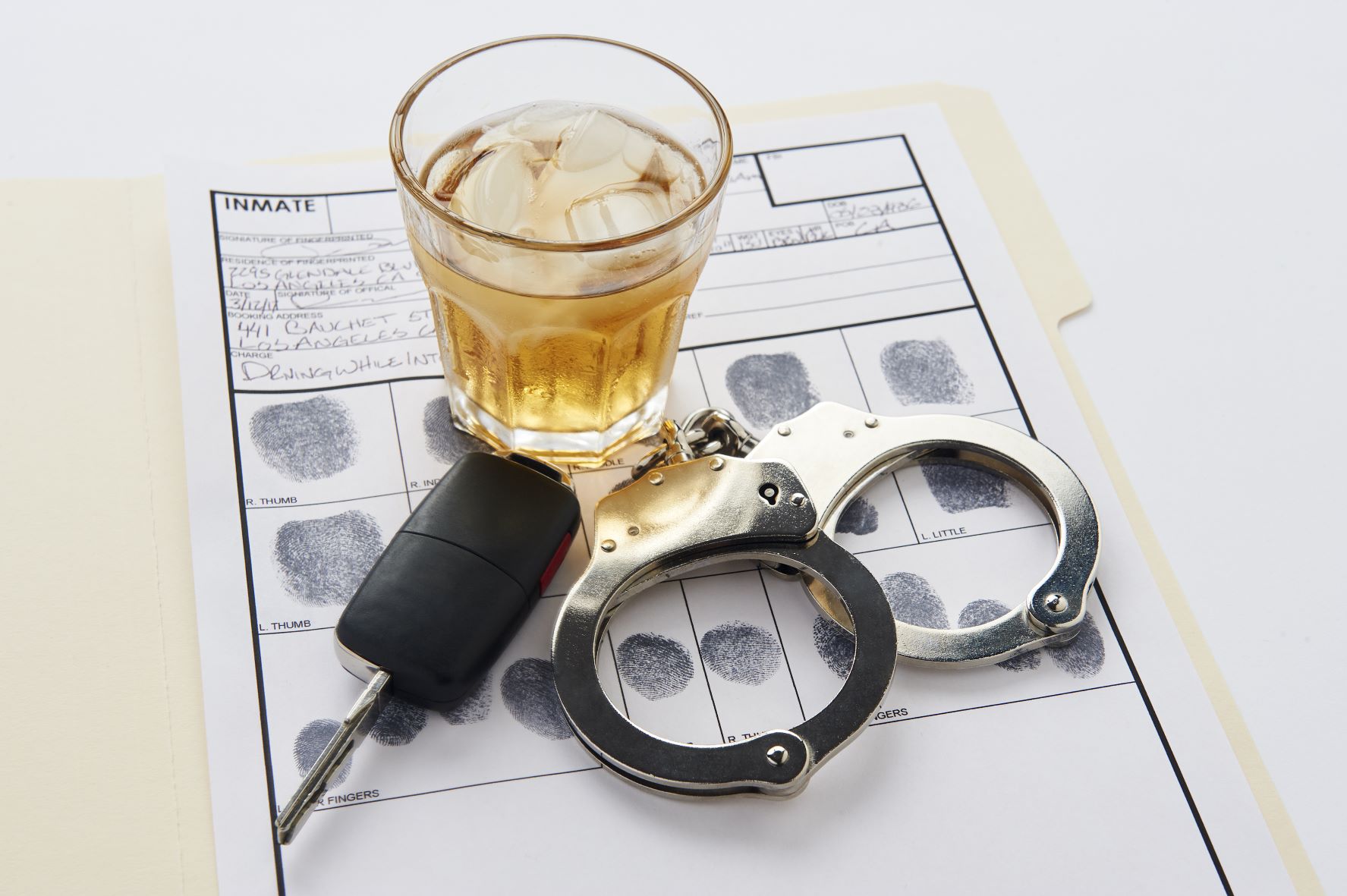
What Goes On My Driving Record? How Can I Get It Expunged?
In the United States, millions of tickets are issued each year for traffic violations. It’s not easy to erase violations from your record, especially if you record serious cases like driving under the influence (DUI) or a hit-and-run accident. But in other less severe cases, it is possible to clear your driving record.
What is a Driving Record?
A driving record is made up of all the times you were in an accident, were convicted of a moving violation, or had your license suspended. In most cases, you can get your driving record from the DMV, either in person or in writing. In some states, you can get it online.
When it comes to driving history, your auto insurance provider can easily see your past driving history. This data helps you determine your rates. For example, if you have a poor driving record, your insurance premiums may go up.
What Goes On A Driving Record?
You can expect to find any of these things on your driving record:
- Moving violations
- Non-moving violations
- Suspended license
- Completion of traffic school
- Restricted driving (daylight only)
- Accidents resulting in citations
Violation Removals
Most violations generally have a set period after which they are removed from your driving record. For example, there is generally nothing you can do to remove a DUI from your driving record (although you can remove it from your criminal history).
Court Fight Citations
You may want to retain an attorney for this, depending on the severity of the charge and the number of points at risk. Keeping your driving record clean requires that you avoid:
- A car accident.
- Any traffic violation.
- Has your license been suspended or revoked?
Remember that your driving record is not only with you from the day you receive your first driver’s license, but until you stop driving. It also has a major impact on various aspects of your life. Therefore, you must keep it as clean as possible.
The Recommendations
Here are some suggestions to help you get a clean driving record once again.
You should first get a copy of your driving record, so you know exactly what it contains. Go to the DMV office or send an application by mail and be prepared to pay a price for the service. Once you have the registry and see what you need to clean up, you can take the necessary steps to make that happen.
Knowing what’s on your current record will help guide you to the right next steps. There are a few ways you can get a copy of your driving record, including:
- Go directly to your state agency (DMV).
- Order online through a third-party provider.
- Ask your insurance provider.
In most cases, your state’s DMV will be the best source for the most current and accurate registration. Once you know what’s on your driving record, you can begin to piece together if anything can be done to erase it. Unfortunately, certain things cannot be deleted.
Enroll in Driving Course
If you receive a ticket for a moving violation, many states offer some type of reliable driving course as a way to reduce points on your driving record. Check with your state agency to see if you’re eligible to have points deducted when you enroll in a driving course.
Contact an Attorney
If you want to clear your driving record, contact one of the best Philadelphia expungement lawyers to tell you how it affects your future options and discuss a strategy for legal representation.
Read More
How Can I Get An Underage Drinking Charge Expunged?
Having a history of criminal activity on your record can jeopardize future opportunities. Many people don’t realize that even something as minor as an underage drinking charge can show up on a background check and limit your ability to get a job or be accepted for a visa.
Luckily, there’s a process called expungement, in which you can request the removal of this unwanted record from your history. However, the law varies in each state, and a need for reputable Philadelphia expungement lawyers. Let’s uncover every detail you need to know about the expungement of an underage drinking charge in Philadelphia, PA.
What Is Expungement?
In simple terms, expungement is the legal process of deleting or destroying your criminal record. This process aims to give opportunities to people who committed a crime in the past.
As this process permanently erases your criminal charge from your history, it follows strict guidelines, and only a few cases are allowed for expungement in Pennsylvania.
Cases Allowed For Expungement In Pennsylvania
Here are the cases eligible for expungement in Pennsylvania:
- Non-conviction cases: Non-conviction records are the cases in which you were charged with a crime but did not receive a conviction. You can entirely expunge these records if you did not commit any other misdemeanor or felony offenses.
- Summary offenses: A summary offense is a minor category of criminal offenses in Pennsylvania. These include underage drinking, disorderly conduct, and public drunkenness. If you have been convicted of a summary offense, you may be eligible for expungement after paying your fines.
- Special Programs: You may also be eligible for an expungement if you have completed a particular program, such as Accelerated Rehabilitative Disposition (ARD). This pre-trial intervention program is offered to first-time, non-violent offenders.
- People aged 70 and above: If you are 70 years or older and have not been convicted of any other crimes for the past ten years, you may be eligible for an expungement.
Expungement Of Underage Drinking Charge In Pennsylvania
By now, you already know that expungement is probable in underage drinking charges in Philadelphia, PA. According to 18 Pa.C.S.A. Sec. 9122 (a)(3), you can file for an underage drinking charge expungement so long as:
- The requestor has settled off all his penalty fines and tickets;
- The requestor has accomplished the driver’s license suspension;
- The requestor has filed a petition to expunge at the Court of Common Pleas.
The entire expungement process is time-consuming and may take a few months to get your records cleared. Furthermore, it’s not 100% guaranteed that your petition will be approved.
Because of this risk, it’s highly advisable to seek the help of a qualified lawyer to represent you in court. An expungement attorney will guide you through every step of the process and increase your chances of getting your records expunged.
Talk To A Philadelphia Criminal Defense Lawyer
Our criminal defense lawyer at Brennan Law Offices has more than two decades of criminal defense experience helping clients get their records expunged. We also have an experienced DUI lawyer in Philadelphia if needed.
If you have been charged with an underage drinking offense and it’s having a detrimental effect on your life, it’s time you take action. Call our criminal defense attorney at 215-568-1400 to schedule your free consultation.
Read More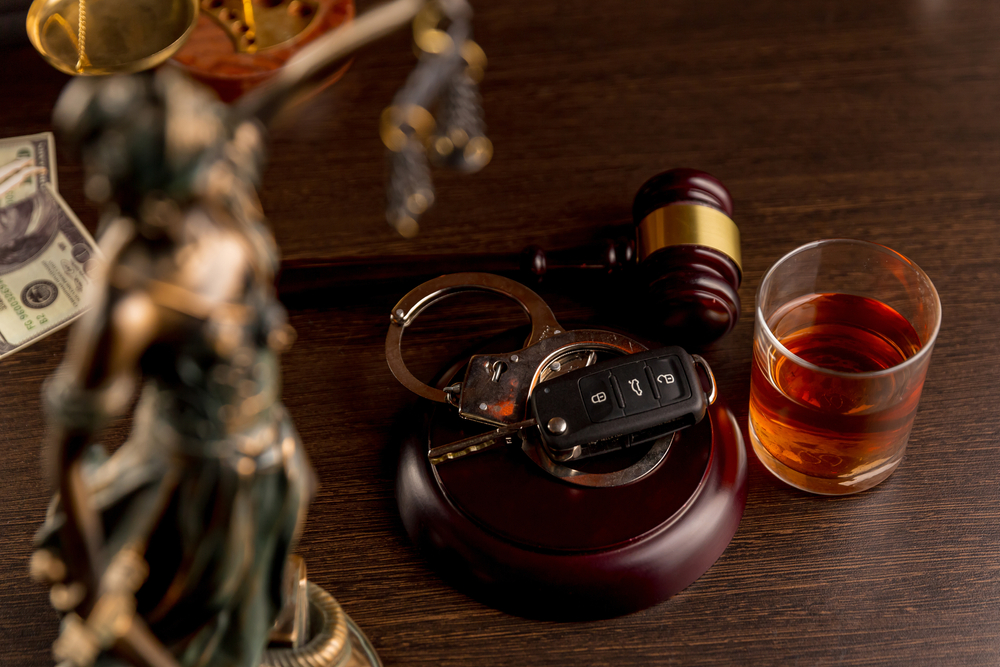
What are The Consequences While Driving Under Different Influences?
Driving under the influence can put you in different types of danger. For one, there are physical consequences where you can suffer paralysis, brain damage, and even death. There are also mental consequences like being filled with guilt, especially when you accidentally kill someone. However, another consequence can have a huge impact on your life, and it comes in the form of criminal offenses.
There are different reasons why a person can be driving under the influence. It can either be because of the influence of alcohol or drugs. But whichever the reason is, it can still put you to different sorts of consequences.
Driving Under The Influence – Understanding The Difference
Driving under the influence (DUI) or impaired driving can be caused by two different things; it’s either because of alcohol or drugs. But no matter which of the two is the cause of a crime, they are still crimes that are punishable by laws. When a law enforcement officer thinks that you are too impaired to drive, they can accuse you of a DUI.
Consequences Of Driving Under The Influence
Whether you are accused of a DUI or a DWI, the consequences of a conviction will highly depend on the severity of your case. You will be investigated if you have committed a first-, second-, or third-degree crime that will lead you to a conviction. A blood alcohol concentration (BAC) test will also be made at the time of your arrest to see the level of your influence. There are three levels of BAC:
- General impairment – 0.8 – 0.99%
- High BAC – 0.10 – 0.159%
- Highest BAC – 0.16% and above
If your blood alcohol content is higher than 0.8% you are legally considered impaired in the United States. Even if your alcohol content is only at 0.8% or below, if an officer thinks you are unable to drive, you will still be charged. This can still apply to anyone that is intoxicated because you are considered as not driving safely and putting others at risk. There are the most common punishments for a conviction under DUI or DWI:
- Imprisonment
- Suspension or revocation of driver’s license
- Confiscation of vehicle license plate
- Vehicle impoundment
- Ignition interlock device restrictions
- Alcohol abuse violations
- Monitored sobriety
- Mandatory alcohol abuse treatment program
- Rehabilitation
The effects of alcohol and drugs can affect a driver’s decision-making skills, as well as their coordination. This is mostly the main reason why driving under the influence can cause many accidents.
The Best DUI Attorneys
A DUI charge is considered a serious crime. It can affect your life in so many ways. That’s why if you’re facing a DUI charge, you will need the help of the best DUI lawyers in Philadelphia to help you defend your case. At Brennan Law Offices, we have a team of lawyers that will help ensure you are given the best DUI results. If you need a Philadelphia DUI attorney or a drug lawyer in Philadelphia, get in touch with us today at Brennan Law Offices.
Read More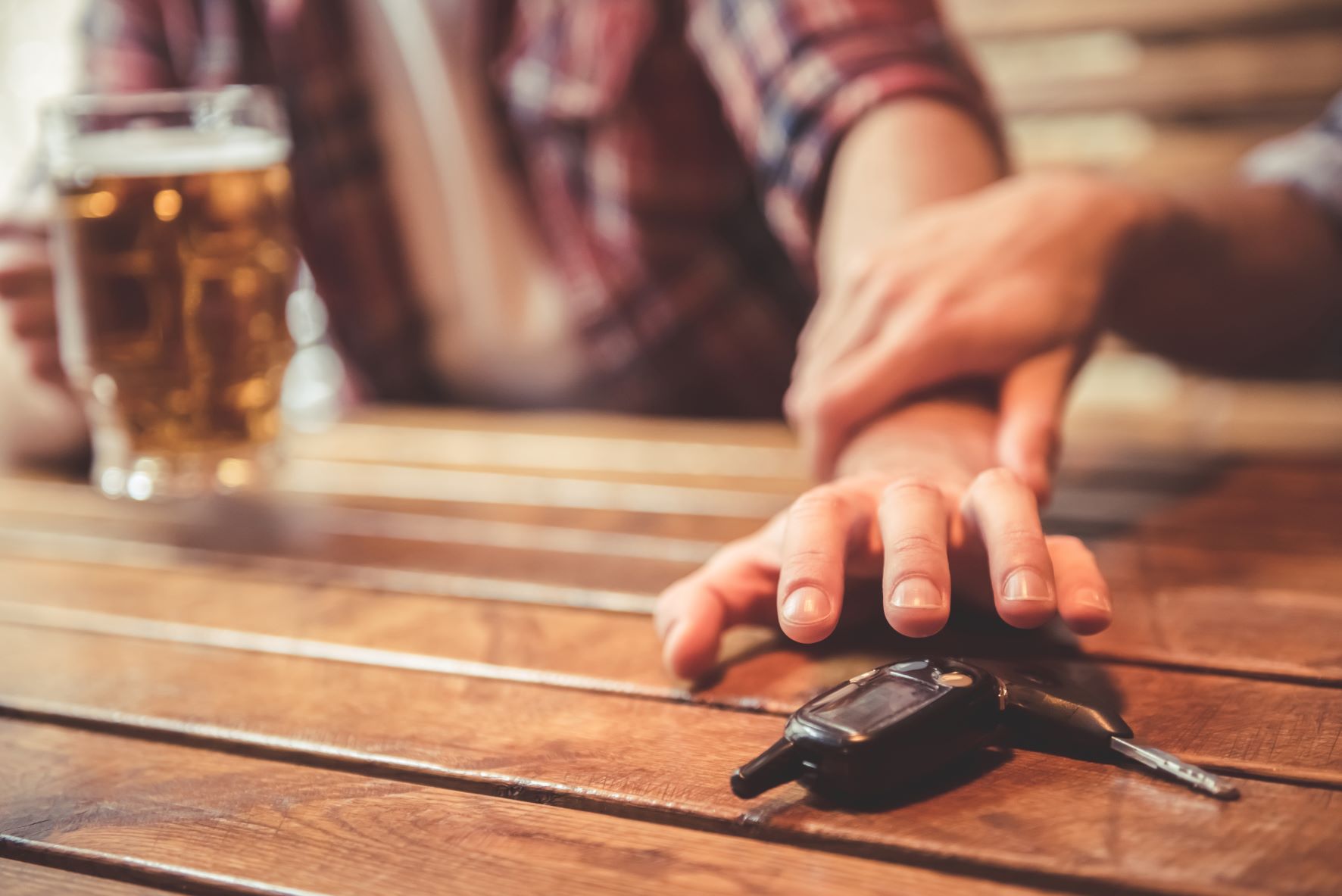
Why DUIs Spike On Xmas Eve And What To Do About It
Whether it’s to get to grandma’s house or meet friends, more people are on the roads during Christmas Eve. With the holidays, holiday parties and general celebrations are in full swing. With that comes more drinking and driving. Drunk driving on Christmas Eve is a problem that has been increasing in recent years.
Tips on How To Avoid DUIs on Xmas Eve
Many people drink alcohol heavily on Xmas Eve because of holiday drink specials. Hence, many people get behind the wheel after having one or two too many drinks. We should not drink and drive while thinking we can handle it. These tips will help keep us safe and away from any road accidents while driving on Christmas Eve:
- Avoid drinking too much before leaving your house/event
- Make sure to get a designated driver or take a cab home
- Don’t try to handle your car keys
Xmas Eve DUI Laws
Alcohol consumption during Christmas Eve is a major issue for police departments all over the country. DUI checkpoints happen year-round, but they are particularly common during the holidays because many people will be out celebrating with alcohol.
The laws vary from state to state, but most have laws against drunk driving on Christmas Eve and New Year’s Eve, even if it falls on a Saturday or Sunday. In cities such as Philadelphia, any driver under 21 cannot drink at all while driving or face hefty fines or even jail time if they get caught.
Knowledge on DUI Tests
In the United States, you are considered to be impaired if your blood alcohol content is above .08%. If the police suspect you have been drinking and driving, they will request a breathalyzer test or a sobriety test. You can refuse to take these tests, but it will likely lead to harsher penalties.
If you drink moderately and responsibly, it should not be a problem. However, if you drink a lot in a short period or mix drinks with energy drinks or other substances, your risk of DUI increases significantly.
If you are drunk and face DUI charges in Philadelphia, you should contact a DUI lawyer in Philadelphia from Brennan Law Offices. Our criminal law attorneys in Philadelphia have adequate experience in handling DUI cases.
A DUI on XMAS Eve is not worth the risk
There are many reasons why you should avoid driving under the influence. You risk killing someone or hurting yourself. You could also lose your livelihood. You could even get injured or face jail time.
Don’t take the risk, don’t drink and drive.
Read More
What Is A Strict Liability Crime?
A strict liability crime is one that is classified as a criminal activity regardless of what someone’s intentions were. Even if you did not have criminal intentions, you can still be charged with a crime. You need to hire the best criminal defense attorney in Philadelphia if you have been accused of a strict liability crime.
What Are Examples of A Strict Liability Crime?
Statutory Rape
This is a crime that occurs when a person has sex with an underage person. You could be charged with a crime even if you were unaware of the fact the person was underage. It also does not matter if the underage person consented to the act. Additionally, it is possible for you to be charged with a crime if you intended to have sex with the underage person, but you did not carry out the actual act.
You Sell Alcohol to an Underage Person
It is illegal for anyone to sell alcohol to someone who is under the age of 21. It doesn’t matter if you believed the person was at least 21-years-old.
Traffic Offenses
The vast majority of traffic offenses are classified as strict liability crimes. If you are caught speeding, then you may be charged with a strict liability crime. It doesn’t matter if you did not believe that you went over the speed limit.
Possible Defenses
The reason that you should hire a criminal defense attorney in PA is because there are many possible defenses that you can use. You may be able to use one of the following defenses.
Contributory Negligence
Your attorney can argue that the plaintiff is partially responsible for the crime. The plaintiff may still be able to recover some damages.
Assumption of Risk
There are some issues that involve consent. If the plaintiff has engaged in a risky activity, then they may not be able to recover any damages.
Abuse or Misuse
It is common for people to file claims if they have been hurt by using a product. It is possible for people to recover damages from using a defective product. However, if the person intentionally misused or abused a product, then this can be used as a defense.
Comparative Fault
Comparative fault raises the question of how much the plaintiff contributed to their own issue. The plaintiff can get part of their claim reduced if they contributed to the crime.
Read More
5 Common Myths Related To DUI
Drinking is a part of American culture. These five common DUI myths related to DUI have become popular over the years as some drivers try to beat the system. It’s important to understand that these drinking myths may be dangerous to your health.
Don’t Worry about DUI Unless Your Blood Alcohol Content is 0.08 Percent
This very popular DUI myth is both dangerous and false. Your blood alcohol content (BAC) at 0.08 percent or higher confirms drunk driving—but it’s possible to be arrested when the officer feels you look or act drunk. If you appear to be driving impaired after drinking, you can be arrested for DUI with or without a confirmed BAC of 0.08 percent or higher!
However, if you’re arrested for DUI in such circumstances, you need a Philadelphia criminal justice lawyer to defend your rights. It may be possible to argue the validity of your test results. An experienced DUI lawyer in Philadelphia can help you to avoid a DUI conviction.
Drive Carefully to Avoid Getting Arrested for Driving Under the Influence
Drinking alcohol impairs your ability to operate a vehicle. Even if you drive carefully, it’s possible to get arrested for drunk driving. Stricter Pennsylvania DUI laws and checkpoints make it more difficult to avoid getting pulled over.
A law enforcement officer may randomly decide to detain you. If you fail the officer’s tests, you could be arrested for driving under the influence.
Police Must Catch You Driving to Make a DUI Arrest
Unfortunately, a police officer doesn’t need to catch you driving drunk behind the wheel. If you believe that’s the case, you’re wrong!
If an officer observes you acting drunk, they’ll reasonably believe you’re driving under the influence. You may still be arrested for DUI.
Eat a Meal or Wait at Least an Hour to Lower BAC Levels
Some believe that eating food or waiting for the alcohol to burn off will lower the BAC level after drinking. Sadly, neither of these options will reliably help you to avoid a DUI.
Eating may help you to overcome some of alcohol’s narcotic effects but doing so won’t affect your BAC. Your BAC is likely to rise to its highest level about an hour after you consume it.
And drinking coffee or taking a cold shower are also unlikely to change your BAC levels after drinking.
Avoid alcohol to avoid a DUI. Ask a designated driver to get behind the wheel. It’s still possible to fail a breathalyzer after consuming one or two drinks!
Suck a Penny to Trick the Breathalyzer
Sucking on a dirty penny won’t improve your chance of passing a chemical test. Unfortunately, this myth has been disproven many times over the years. A breathalyzer device measures air within the lungs. A penny in your mouth won’t help! Law enforcement officers may also look inside your mouth before administering the test.
Read More